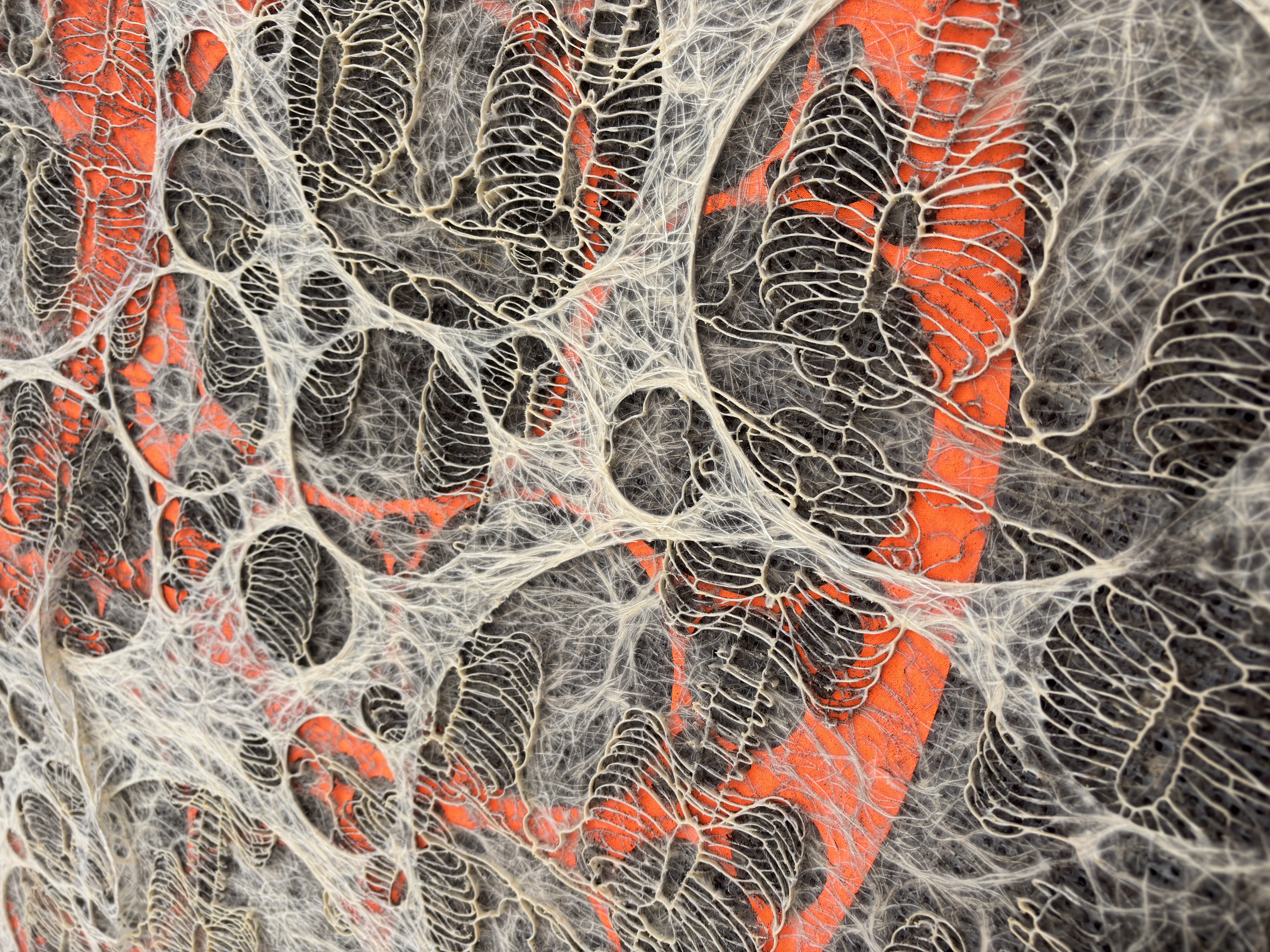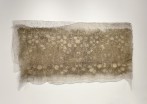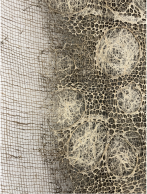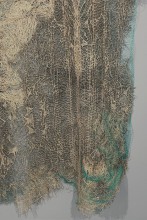From 29 th May the Église-Saint-Nicolas in Caen hosts an solo exhibition by Diana Scherer as part of the Normandie Impressionists Festival.
Participating artist whose works will be featured across Normandy during the festival:
Ai Weiwei, Céleste Boursier-Mugenot, Fujiko Nakaya, Jacques Perconte, Julien des Monstiers, Lionel Sabatté, Mika Ninagawa, Noémie Goudal, Sarah Moon, Diana Scherer, Studio Drift, Tanja Smeet,
Curator Philippe Platel
https://www.normandie-impressionniste.fr/fr/l-edition-2026?preview=1s3j99DFjdsfd%C3%A79UJUE
Tell me where home is – Kunstmuseum Wolfsburg September 2026
curator Uta Ruhkamp
Why We Make galleries opening April 2026
The dress grown from roots will be showcased in the permanent gallery ‘Why We Make”. The two ‘Why We Make”galleries exploring global contemporary culture, they take inspiration from the history of east London as a hub for design and creativity, centring topics from representation and identity to social justice and environmental action. Displaying items from within the V&A collection and over 100 newly acquired objects.
V &A Museum
Parkes Street,
Queen Elizabeth Olympic Park,
London, United Kingdom E20 3AX
https://www.vam.ac.uk/east?srsltid=AfmBOop-4-eEmV60TgRZP_1XQQuKRxX89ICjQc697y0xElbBEW_4SgTP
SYMBIOSIS
16.5.2026 ‐ 1.11.2026
Malva Museum Lahti
Artists:
Liina Aalto-Setälä, Gerbrand Burger / Thinking Forest, Eyes as Big as Plates(Karoline Hjorth & Riitta Ikonen), Alma Heikkilä, Kim Laybourn, nabbteeri, Raimo Saarinen and Diana Scherer.
https://www.malvamuseo.fi/en/exhibitions/symbiosis/


#1
The mushroom at the end of the world
9 nov. t/m 12 apr. 2026
An exhibition on decay and resilience
Artists: Maartje Korstanje, Diana Scherer, Zeger Reyers, Driessens & Verstappen, Margit Lukács & Persijn Broersen, Suzette Bousema, Otobong Nkanga
Curator: Rianne Groen
Coda Apeldoorn


Hyper Rhizome # 7 2025 green mesh, grown root textile with patterns of car tracks and red cabbage. 400 cm x 250 cm


Hyper Rhizome # 11 2023 grown root textile on jute with patterns of microscopic plant structures and circles. 300 cm x 150 cm


#3


#4
Re – Constellations
Exhibition Director: Jinfei Ying
Artistic Director: Hui Shi
Co-Curator: Jun Jiang , Huang Yan , Assadour Markarov , Jia Xu
Assistant Curator: Junyu Li , Jiachen Liu , Zhe Ren , Chaowei Zeng
Participating Artists:
金守子(Kimsooja,韩国, 荒川医(Ei Arakawa,日本)易卜拉欣•马哈马(Ibrahim Mahama,加纳)朱利安·克鲁泽(Julien Creuzet,法国)(Aziza Kadyri,俄罗斯)赵素熙(Cho Sohee,韩国)崔真、夏因(Choi +Shine,美国)格尔加娜·塔巴科娃(Gergana Tabakova,保加利亚)卡里·迪尔达尔(Kari Dyrdal,挪威)阿齐扎•卡迪里(Aziza Kadyri,俄罗斯)凯特·伊根(Kate Egan,英国)莱昂纳多·奇亚奇奥 & 丹尼尔·贾诺内(Leonardo Chiachio & Daniel Giannone,阿根廷)莱昂纳多·乌利安(Leonardo Ulian,意大利)莱拉·卡德纳斯(Leyla Cárdenas,哥伦比亚)露西·奥尔塔 + 豪尔赫·奥尔塔(Lucy +Jorge Orta,英国)玛娜尔·阿尔多瓦扬(Manal AlDowayan,沙特阿拉伯)玛丽尔·克莱蒙特(Mariel Clarmont,法国)派翠西亚·伊斯塔柯(Patricia Perez Eustaquio,菲律宾)索尔维格·阿尔伯格(Solveig Aalberg,挪威)康瑞璟(Suki Seokyeong Kang,韩国)http://fiberarthangzhou.en.caa.edu.cn/2025/show_summary/zlgk/index.html
INTELLIGENS. NATURAL. ARTIFICIAL. COLLECTIVE.
https://www.labiennale.org/en/architecture/2025/natural/interwoven
The 19th International Architecture Exhibition is open to visitors from 10 May to Sunday 23 November 2025 (pre-opening May 8 and 9), curated by the architect and engineer Carlo Ratti,
Habitats. (Un)Safe Spaces | May 24 – September 28, 2025
The Triennial for Small Sculpture Fellbach will celebrate its 16th edition in 2025. For over four decades, this renowned exhibition of contemporary small-scale sculptures has been a cornerstone of the global art scene. Works by around 50 internationally acclaimed artists will be showcased in the impressive setting of the Alte Kelter. The 16th Triennial for Small Sculpture Fellbach, under the title Habitats. (Un)Safe Spaces, will explore the question of how we can live together in the future in light of global challenges. At the heart of the exhibition is the fragile relationship between humans and nature, which the artists will approach from a wide range of perspectives.
